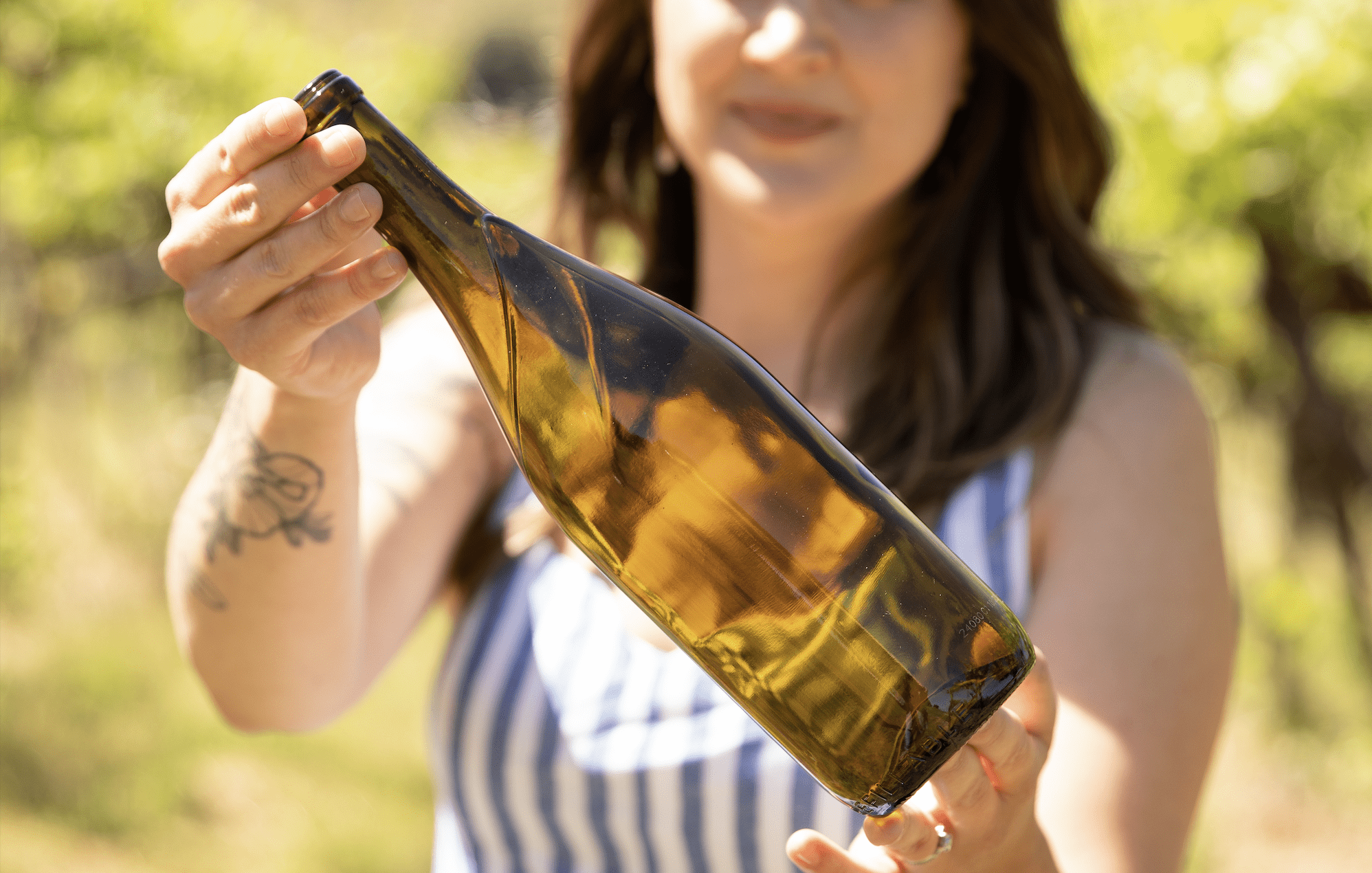Why We Need a Standardized Bottle for Reuse, Today Not Tomorrow

Salem Shark Tank event names two winning companies, promotes local entrepreneurs
September 4, 2024
The Importance of a Localized Supply Chain
September 27, 2024
The wine industry is at a pivotal moment as global awareness of environmental impact grows, pushing consumers and businesses to seek more sustainable solutions. One solution is the implementation of a standardized wine bottle designed specifically for reuse. We know that people love their glass wine bottles, though, it’s important to recognize that glass represents a huge percentage of the industry’s carbon footprint. The United States Environmental Protection Agency states that in 2018, the United States recycled 3.1 million tons of glass containers, which means only 31% of glass was recycled. About 1.6 million tons were burned in energy-generating facilities, making up nearly 5% of all waste used for energy recovery that year. However, the majority—around 7.6 million tons of glass—ended up in landfills, accounting for over 5% of all landfill waste. These numbers reveal that, despite some recycling and energy recovery efforts, most glass containers still contribute heavily to landfill waste. The manufacturing of wine bottles can have devastating impacts on the environment if they are not reused or recycled properly. At Revino, we’re not just talking about sustainability; we're taking action. A standardized bottle for reuse is not just a good idea—it's an essential step forward for the wine industry, a step that we have already taken.
The Problem with the Proliferation of Bottle Molds
The diversity in wine bottle designs is a hallmark of the industry and a significant barrier to sustainability and reuse. Hundreds of bottle molds, each varying in height, width, and subtle design details, flood the market. While this variety can add aesthetic value for beverages like liquor, which are marketed on their distinctive shape, building up the necessary volume of each mold to be inspected, washed, and sorted is difficult. This is crucial for an effective and sustainable reuse system, making it challenging for those attempting to implement large-scale reuse programs. As highlighted in a recent Wine Business Monthly article (Dugan, 2011), the task of sorting these bottles for washing becomes increasingly complex. Each minor difference may require additional changes of parts for bottle washers or reprogramming inspection equipment, making the process labor-intensive, costly, and inefficient. In short, the current diversity of bottle molds is a hurdle that must be overcome to move toward a more sustainable future.
A Solution with Vision: Revino’s Standardized Bottle Design
At Revino, we’ve taken this challenge head-on by standardizing a design for our bottles to be easily identified by AI optics while allowing brands to stand out on a shelf. This approach makes it simple to implement and scale reuse systems, giving us the ability to easily integrate with existing deposit return infrastructure with little change to consumer behavior. Our vision doesn’t stop at easy identification; we believe in creating a bottle that is structurally designed for reuse. While it’s true that a standard glass bottle can be reused, a bottle specifically engineered for reuse can deliver far greater benefits. Revino bottles are designed to withstand up to 50 washes and reuses. Each time a bottle is washed, it prevents emissions related to new glass production and the mining of virgin material. Wineries will still use label art to continue to make a unique impact on their audiences while reducing carbon emissions. This extended product lifecycle saves emissions and sets a new standard for sustainability in the wine industry.
The Path Forward: Designing the Next Generation of Wine Bottles
The benefits of a standardized bottle are undeniable: easier sorting, more efficient washing processes, and a significantly reduced carbon footprint. However, to make a real impact, we need both the industry and consumers to unite on this mission. At Revino, we're dedicated to leading the way by combining innovative design with practical solutions that truly make a difference. We invite you to join us on this journey and be part of the solution by helping us design our next bottle through the Bordeaux Design Survey. Together, we can create a bottle that is not only beautiful and functional but also a powerful tool in the fight against climate change. Let’s build a sustainable future, one bottle at a time!
Websites sourced: https://www.winebusiness.com/wbm/article/94993
ABOUT REVINO: Revino provides wine bottle reclamation and sanitation services to Oregon wine producers while building a robust local and sustainable glass supply network. Their process operates in an infinite loop starting with bottle manufacturing and distribution, moving to consumption and redemption, and ending with bottle sanitization and reuse. Through their revolutionary RGBs and certified quality washing processes, Revino empowers wineries to embrace sustainability and make a significant positive impact on the environment.
For media inquiries, please contact:
Sarah Reid / PR for Revino
sarah@revinobottles.com




